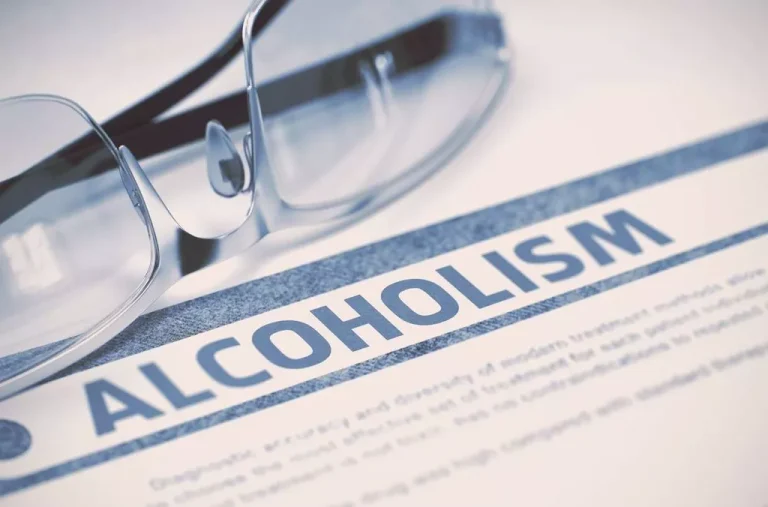
Steven Collier RN is one of the co founders of the Hemet Valley Recovery Center and owner of Addiction Medicine Services Inc. He has been working in the behavioral health field since serving as a command Drug Exemption Officer in the U.S. A graduate of California State University Los Angeles, Mr. Collier holds a BA in Health and Safety Studies as well as a certificate as a specialist in Drug and Alcohol Problems also from Cal State. Obtaining a degree in Registered Nursing from Saddleback College, Mr. Collier has held a Registered Nursing License since the early1980’s. From 1984 to 1986, Mr. Collier worked as a Clinical Instructor for the Care Units at Cedars-Sinai Medical Center in Los Angeles and then served as the Nurse Manager of the Physical Medicine and Rehabilitation Center also at Cedars Sinai from 1986 to 1988. From 1988 to 1991, Mr. Collier was the Nursing Supervisor at the Alcohol and Drug Treatment Center ( ADTC), Pomona Valley Hospital Medical Center.

The negative effects of alcohol
Professional treatments and support can help you overcome alcohol misuse and alcohol use disorder and improve your overall health and well-being. When it comes to your beverage of choice, alcoholic beverages are unique. They’re often an important component of social events, celebrations, and milestones; we toast people, events, and memories with alcohol. And, of course, the alcoholic beverage industry is a major economic force, responsible for more than $250 billion in sales annually in the US.
Alcohol Misuse/Dependence
In the other hand, male modest drinkers gain 0.94 years (95% CI 0.65–1.23 years) and male modest drinkers who were never smokers gain 3.97 years (95% CI 3.65–4.29 years), but loss 2.04 years (95% CI 1.64–2.44 years) if smoking (Fig. 1). It also examined risk estimates when using occasional drinkers rather than lifetime abstainers as the reference group. In the fully adjusted models, there were nonsignificant protective associations for low-volume drinkers whether using lifetime abstainers or occasional drinkers as the reference group, though this was only a RR of 0.97 for the latter. In a separate research study, it was found that those individuals who reported drinking excessive amounts had shorter life expectancies at age 40 of approximately 4 to 5 years. Approximately 20% of the alcohol-related survival difference was attributed to death from cardiovascular disease. Further exploration and analysis of the study results revealed that people who drank beer or spirits, as well as binge drinkers, had the highest risk for mortality from all causes.
- Mortality rate ratio for people with alcohol use disorder compared with people in the general population in Denmark, Finland and Sweden from 1987 to 2006.
- The development and refinement of techniques to address these problems and provide early intervention services will be crucial to meeting the needs of this growing population.
- Alcohol is a risk factor for many cancers, like mouth, throat, esophagus, colon, breast cancer and more.
- These risks may be even more severe if you have certain other habits, such as smoking and drinking hot tea.
How much alcohol consumption is too much?
- The research revealed that consuming just two alcoholic drinks per week could shave between five to six days off your life.
- As the majority of drinkers (64.6% in total and 72.2% in males) also smoked, further analysis of non-smoking drinking HRs were needed to avoid the mixing effect of smoking and drinking.
- Alcohol consumption was defined as the national average of registered amount of alcohol consumed (litres of pure alcohol) per capita aged ≥15 years during a calendar year.
A person who drinks 35 alcoholic beverages a week is looking at shaving two years off their life, according to the research. Medications and lifestyle modifications may also be prescribed depending on the stage. The liver is responsible for metabolizing or processing ethanol, the main component of alcohol. Over time, the liver of a person who drinks heavily can become damaged and cause alcoholic liver disease. With the availability of a large cohort of nearly half a million subjects followed between 1996 and 2008, we compared modest drinkers (no more than one drink a day) or regular drinkers with non-drinker.
thoughts on “Alcohol and Longevity: Does Drinking Increase Lifespan?”
Our study found that mortality risk differed significantly by cohort age and sex. It might be that the risk is also higher for other subgroups, such as people living with HIV,137 a possibility future research should investigate. We published 2 previous systematic reviews and meta-analyses that investigated these hypotheses. In particular, young cohorts followed up to old age did not show significant cardio-protection for low-volume use.
Can Alcohol Help You Live Longer? Here’s What the Research Really Says

Likewise, because older adults who drink are more likely to take alcohol-interactive medications than younger drinkers (Breslow et al. 2015), they may be at increased risk for adverse alcohol-medication interactions. Clinicians who treat older patients can assess the number of drinks per day, the number of drinking days, and any binge drinking to begin to address the health implications of an individual’s pattern of use. A major limitation involves imperfect measurement of alcohol consumption in most included studies, and the fact that consumption in many studies was assessed at only 1 point in time. Merely removing former drinkers from analyses may bias studies in favor of drinkers, since former drinkers may be unhealthy, and should rightly be reallocated to drinking groups according to their history.

Alcohol use disorder: incidence and associated mortality
The aggregate indicator from taxation data included consumption for the entire population based on production, import, export and sales (6). The purpose of this study was to evaluate mortality and life expectancy in people who had AUD in Denmark, Finland and Sweden between 1987 and 2006. how long do alcoholics live “Our findings add one piece to the growing evidence that low to moderate alcohol drinking should not be recommended for health reasons,” Dr. John said. Any perceived increase in mortality risk is likely to be due to lifestyle factors preceding abstinence or because of smoking tobacco.
Prevalence of Alcohol Misuse Among Older Adults

They also were less likely, at 5 years posttreatment, to have family and friends that encouraged alcohol use. Older females were more likely than any other group to be abstinent at followup. The rates of alcohol misuse/dependence in older adults are by far smaller than the rates of at-risk use. In 2002, over 616,000 adults age 55 and older reported meeting the criteria for https://ecosoberhouse.com/article/does-alcohol-dehydrate-you/ alcohol dependence in the past year, as defined by the Diagnostic and Statistical Manual of Mental Disorders, Fourth Edition (DSM–IV). They represented 1.8 percent of those age 55–59, 1.5 percent of those age 60–64, and 0.5 percent of those age 65 or older (SAMHSA 2002). Later data from NSDUH showed that 780,000 older adults had alcohol abuse/dependence (SAMHSA 2012a).
